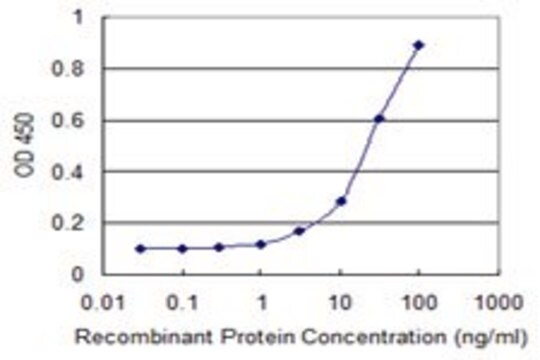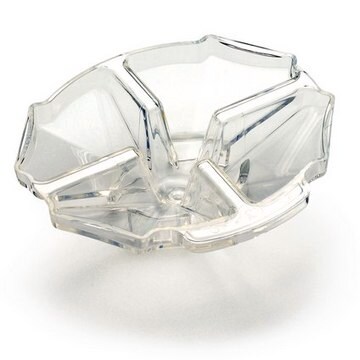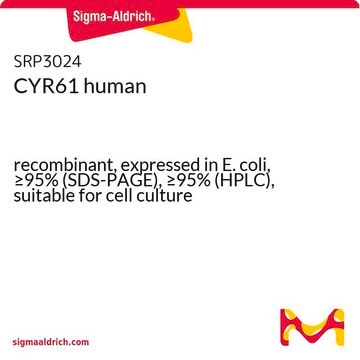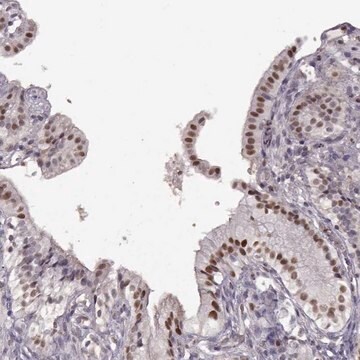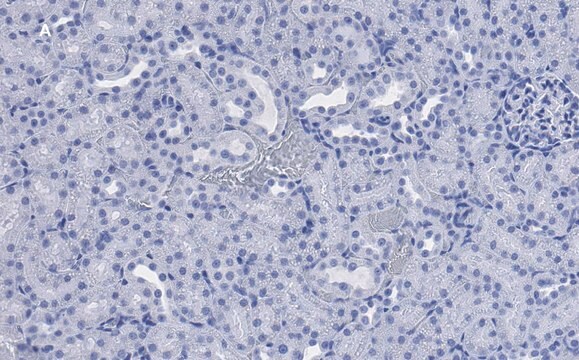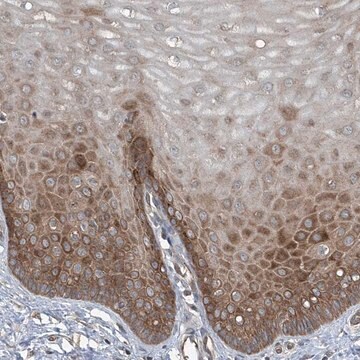ABC102
Anti-CCN1/CYR61 Antibody
from rabbit, purified by affinity chromatography
Sinonimo/i:
Protein CYR61, CCN family member 1, Cysteine-rich angiogenic inducer 61, Insulin-like growth factor-binding protein 10, IBP-10, IGF-binding protein 10, IGFBP-10, Protein GIG1
About This Item
Prodotti consigliati
Origine biologica
rabbit
Livello qualitativo
Forma dell’anticorpo
affinity isolated antibody
Tipo di anticorpo
primary antibodies
Clone
polyclonal
Purificato mediante
affinity chromatography
Reattività contro le specie
human, mouse, rat
Reattività contro le specie (prevista in base all’omologia)
chimpanzee (based on 100% sequence homology)
tecniche
immunohistochemistry: suitable (paraffin)
western blot: suitable
N° accesso NCBI
N° accesso UniProt
Condizioni di spedizione
wet ice
modifica post-traduzionali bersaglio
unmodified
Informazioni sul gene
human ... CYR61(3491)
Descrizione generale
Specificità
Immunogeno
Applicazioni
Apoptosis & Cancer
Apoptosis - Additional
Qualità
Western Blot Analysis: 2 µg/mL of this antibody detected CCN1/CYR61 in 10 µg of NIH/3T3 cell lysate.
Descrizione del bersaglio
Stato fisico
Stoccaggio e stabilità
Risultati analitici
NIH/3T3 cell lysate
Altre note
Esclusione di responsabilità
Non trovi il prodotto giusto?
Prova il nostro Motore di ricerca dei prodotti.
Codice della classe di stoccaggio
12 - Non Combustible Liquids
Classe di pericolosità dell'acqua (WGK)
WGK 1
Punto d’infiammabilità (°F)
Not applicable
Punto d’infiammabilità (°C)
Not applicable
Certificati d'analisi (COA)
Cerca il Certificati d'analisi (COA) digitando il numero di lotto/batch corrispondente. I numeri di lotto o di batch sono stampati sull'etichetta dei prodotti dopo la parola ‘Lotto’ o ‘Batch’.
Possiedi già questo prodotto?
I documenti relativi ai prodotti acquistati recentemente sono disponibili nell’Archivio dei documenti.
Il team dei nostri ricercatori vanta grande esperienza in tutte le aree della ricerca quali Life Science, scienza dei materiali, sintesi chimica, cromatografia, discipline analitiche, ecc..
Contatta l'Assistenza Tecnica.